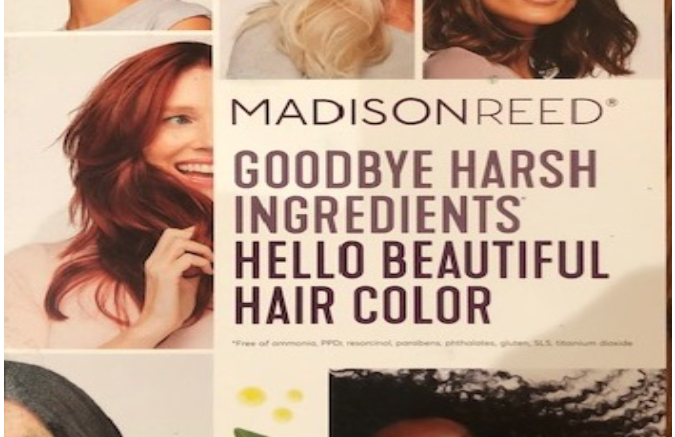A federal lawsuit is accusing Madison Reed of falsely claiming that its hair color products are less harsh than those manufactured by some other companies.
“In delivering its healthful product messaging, Defendant has touted, and continues to tout, that the Products are free of certain “harsh ingredients” traditionally found in hair color products,” the suit says, including ammonia.
But the Feb. 6 suit says Madison Reed replaced the harmful chemicals with other ingredients that are dangerous.
“Unfortunately for consumers who have purchased the Products,” says the suit, “do not allow for consumers to realize the danger that its Products pose consumers such as, among other things, hair loss, scalp irritation and overall damage to their hair.
“In fact, one of the chemicals Defendant used to replace ammonia, which it has called “harsh” for years now in its advertising, is not only made from ammonia, but it has also been shown through scientific studies to cause hair loss and more damage to hair than the chemical it replaced. Defendant is well-aware of these studies.”
Madison Reed is well aware of the issues with its products “because thousands of consumers have reported their hair failing, as well as scalp irritation and itchiness, shortly after or during actual use of the Products.
“These complaints have been made directly to Defendant and on publicly-accessible consumer product review sites. And if there is any doubt whether Defendant is aware of reviews posted on third-party sites, like Trustpilot (www.trustpilot.com) for example, Defendant has gone onto these websites and responded directly to aggrieved consumers on numerous occasions.
This is an example of the kinds of complaints filed: “Funny how you fail to mention that ethanolamine the product you use in your ammonia free hair color can cause hair loss………..I found out the hard way….shame on you for not warning people that this could be a problem.”
Despite the complaints, the suit says Madison Reed “provides no warning about these consequences, and in fact
continues to make numerous assertions about the gentle, safe and healthy nature of the Products on its website, and via other forms of advertising and marketing.
For example, Defendant’s website makes statements relating to how its Products do not contain the “usual harsh ingredients” generally found in hair color products and instead that they are “packed with all of the things healthy hair loves.”


